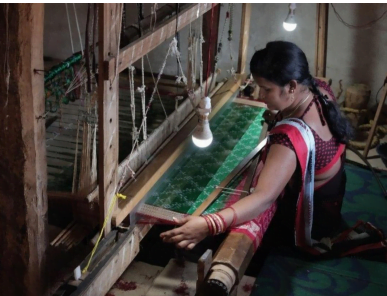

In the pursuit of achieving net-zero emissions and combating climate change, carbon offsets play a crucial role.
The objective of carbon offset projects is to diminish greenhouse gas emissions in a specific location as a way to counterbalance emissions happening in other areas. However, ensuring the environmental integrity of these projects is vital to their effectiveness.
At Tisser, we are committed to upholding the highest standards of sustainability, which includes obtaining
certifications for our textile products.
In this blog, we will explore the significance of carbon
offsets and project certification, while highlighting some of the sustainability certificates such as Oeko-Tex and GOTS for textiles.
Sustainability Certificates for Textiles:
1. Oeko-Tex Standard Certification:
Oeko-Tex is a textile certification program that focuses on the environmental impact of textile production.
It sets strict standards for harmful substances, ensuring that textiles meet rigorous safety and ecological criteria.
By obtaining the Oeko-Tex certification, an organization can demonstrate its dedication to producing textiles that are free from harmful chemicals, promoting a healthier and safer environment for both consumers and workers.
2. Global Organic Textile Standard (GOTS):
The Global Organic Textile Standard is a globally recognized certification for organic fibers and textile products. GOTS ensures that organic materials, from harvesting to manufacturing, meet stringent environmental and social criteria.
By obtaining the GOTS certification, an organization ensures commitment to using organic materials, reducing chemical inputs, and upholding fair labor practices throughout our textile supply chain.
3. Organic Content Standard Certification:
The Organic Content Standard certification is particularly relevant in the textile industry, where organic fibers, such as organic cotton, are increasingly sought after by conscious consumers.
By obtaining the OCS certification for textile products, brands and manufacturers demonstrate their commitment to using organic materials and supporting sustainable agricultural practices.
Having a certification provides assurance to consumers that the organic claims made by the manufacturer or brand are backed by reliable and transparent certification processes.
Project certifications are essential tools in the pursuit of achieving net-zero emissions and ensuring environmental integrity.
At Tisser, we recognize the significance of these measures in our commitment towards sustainability, hence we invest in verified carbon offsets with the plan of obtaining the above certifications for our textiles by 2023.

